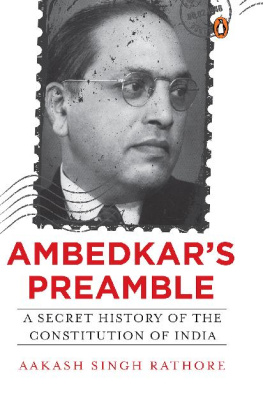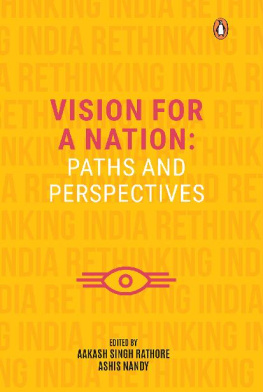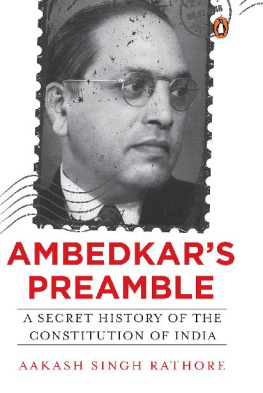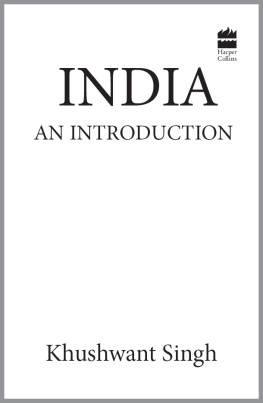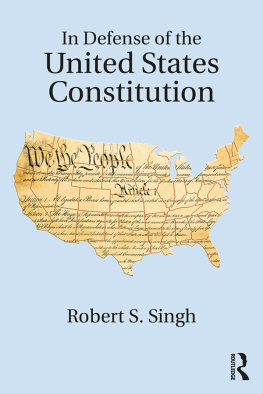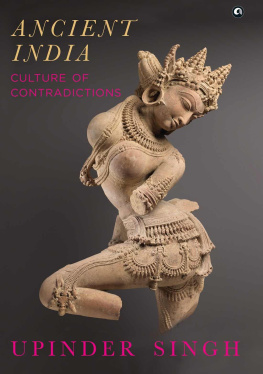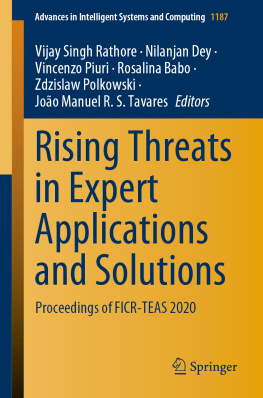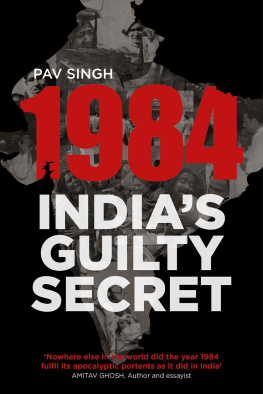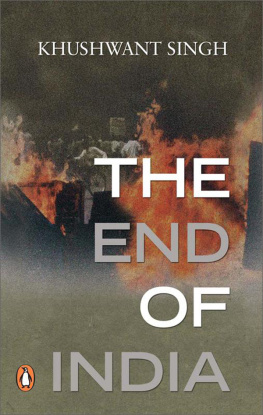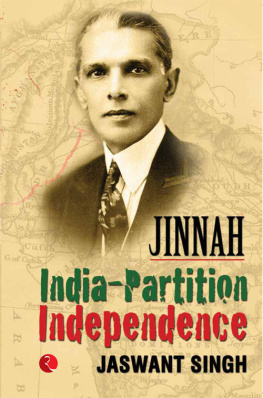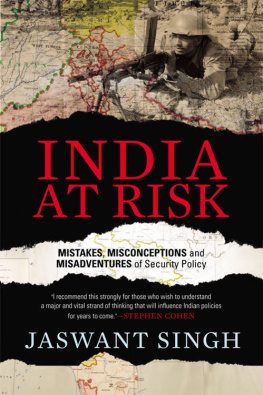AAKASH SINGH RATHORE
Ambedkar's Preamble
A secret history of the Constitution of India
Contents
Advance Praise for the Book
Ambedkars Preamble is a constitutional history that recounts the deep study and deliberations made to conceptualize the great constitutional values of the Preamble. The book captures the immense vision and contribution of Dr Ambedkar to the legal and social framework of our republic. Aakash Singh Rathore deserves special commendation for having chosen a subject hitherto uncharted by othersJustice K.G. Balakrishnan, former chief justice of India
An insightful analysis of the origins and implications of the central ideas of the Preamble to the Indian Constitution. There have been many good books on the Constitution, but none that focused on the Preamble and used it to prise open its distinctive conceptual framework. This is a very valuable book on Ambedkars seminal contributionBhikhu Parekh, member of the House of Lords and fellow of the British Academy
Ambedkars Preamble is such a significant book. It not only establishes how Ambedkar steered the drafting of the main body of the Indian Constitution but also how he formulated its soulthe Preamble. The book solves several mysteries about who is responsible for the core philosophy of the living Constitution of India. Everyonestudents, activists, lawyers and judgesneeds this book on their shelvesKancha Ilaiah Shepherd, activist and author of the bestselling Why I Am Not a Hindu
Aakash Singh Rathore decodes the secret history of the drafting and adoption of the Preamble to the Indian Constitution. He urges that we all make Ambedkars handiwork our own too by adopting it as an agenda of the struggle for justice in our troubled times. The unity of the nation may only be achieved by preserving the fraternal dignity of all individuals. His moral reading of the Preamble, to which constitutional law is a massive footnote, is imperative because it contains both the points of departure as well as that of arrivalUpendra Baxi, acclaimed constitutional expert and author
Poet Altaf Hussain Hali had said, Admiyat seekhte hain is se sab chhote bade, nau-e-insaan me baqa-e-admiyat is se hai. An earlier generation captured our human values in the Preamble. The new generations must remember and practise these values, out of which our nation has sprung. As we celebrate seventy years of the republic, I urge everyone to read this captivating bookSyeda Hameed, womens rights activist and former member of the Planning Commission
THE CONSTITUTION OF INDIA
PREAMBLE
W E, THE PEOPLE OF INDIA, having solemnly resolved to constitute India into a SOVEREIGN SOCIALIST SECULAR DEMOCRATIC REPUBLIC and to secure to all its citizens
JUSTICE, social, economic and political;
LIBERTY of thought, expression, belief, faith and worship;
EQUALITY of status and of opportunity; and to promote among them all
FRATERNITY assuring the dignity of the individual and the unity and integrity of the Nation;
IN OUR CONSTITUENT ASSEMBLY this twenty-sixth day of November 1949, do HEREBY ADOPT, ENACT AND GIVE TO OURSELVES THIS CONSTITUTION.
I think the Drafting Committee would accept [it], though not openly, at least secretly.
Naziruddin Ahmad to the Constituent Assembly
25 November 1949
Preface
Anatomy of a Secret
On 17 November 1949, Bhimrao Ramji Ambedkar, chairman of the Drafting Committee launched the proceedings of the Constituent Assembly of India, by moving that the Constitution as settled by the Assembly be passed. The transcripts recording these proceedings stated in brackets that there were cheers from the members of the Assembly upon hearing the motion.
Dr Ambedkars motion was the beginning of the third reading of the draft Constitution by the Assembly. It had, over the course of the previous year, passed through two readings already. This was to be the final round.
Naziruddin Ahmad, a Constituent Assembly member representing West Bengal, had persistently been a staunch and vocal critic of the draft Constitution ever since it first made its appearance in the Assembly on 4 November 1948, at the time of the first reading. The text of the draft, he asserted, contained a number of errors, anomalies, redundancies and repetitions. He squarely placed the blame on the Drafting Committee for these problems. These outward criticisms of the draft Constitution were fuelled by an inward suspicion of the Drafting Committee itself. Beneath the surface of Ahmads critique of the text lay his frustrations over the process of its drafting.
Ahmad believed that the Drafting Committee, led by Dr Ambedkar, had engaged in a drafting process that lacked transparency, making changes to the draft Constitution without the knowledge or consent of the Constituent Assembly. He made his private suspicion a public accusation in the Constituent Assembly, enumerating grammatical and syntactical changes that were there for everyone to see. On 25 November 1949, he quipped:
This is only a punctuation amendment which, I think, the Drafting Committee would accept, though not openly, at least secretly .
The evidence that Ahmad produced was primarily to do with syntax. The insinuation, however, extended to semanticsto meaning. Was the Drafting Committee engaged in a secret process of altering the meaning of constitutional words and phrases?
Several others in the Constituent Assembly thought so too. As the transcripts revealed, members K. Santhanam (from Madras), R.R. Diwakar (from Bombay) and Maulana Hasrat Mohani (from the United Provinces), could often be heard grumbling on this point in the Assembly:
Santhanam: The Drafting Committee... I think illegitimately converted themselves into a Constitution Committee. They have taken upon themselves the responsibility of changing some vital provisions adopted in the open House by this Assembly.
...
Diwakar: The Drafting Committee and its chairman... not only drafted the decisions of the Constituent Assembly but, in my humble opinion, it has gone far beyond mere drafting. I may say it has reviewed the decisions, it has revised some of the decisions and possibly recast a number of them.
...
Mohani: Ambedkar has gone out of his way. He has not conformed to the Objectives Resolution and I request all of you to see what he had done. Instead of drafting the Constitution in conformity with the Objectives Resolution, he wants to make the Objectives Resolution conform to what he is proposing now.
This allegedly clandestine process is one of the secrets that this history of the Preamble unravels. But it is not the only one.
Authorship of the Preamble
Who wrote the Preamble to the Constitution of India? If that sounds like the sort of question you might expect to find in a Union Public Service Commission (UPSC) coaching manual, thats because it is. The answer that such manuals invariably offer is wrong.
The authorship of the Preamble is shrouded in a cloak of mystery. Unlike the Constituent Assembly, we have no verbatim transcripts for the Drafting Committee meetings where all sections and articles of the Constitution were presented, discussed, dissected, debated, modified and finalized. Instead of transcripts, we have minutes. And in those crucial Drafting Committee meetings, when the Preamble was up for discussion and finalization, we dont even have all of the minutes. Even worse, the various narratives that we do have todayinside views by those who attended the Drafting Committee meetings, contemporary statements or writings by Constituent Assembly members not privy to the Drafting Committee meetings, or speculative accounts by historians or others familiar with the drafting processall seem to disagree on the details.



